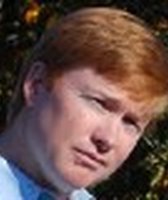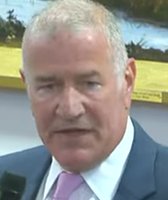Stand up for the facts!
Our only agenda is to publish the truth so you can be an informed participant in democracy.
We need your help.
I would like to contribute
Hurricane Irma’s rampage through Florida left politicians with soul-searching and blame-sharing about how to better protect the state for the next monster storm.
Elderly residents are chief on the priority list after 10 residents died at a South Florida nursing home that went days without central air conditioning.
The tragedy at Rehabilitation Center at Hollywood Hills has sparked multiple investigations and crisscrossing confrontations about what went wrong and what can be done to keep it from repeating.
The facility blamed Gov. Rick Scott for not adequately responding to calls for help to a state-provided emergency line. Scott and Sen. Bill Nelson have blamed the facility for not sending patients to a nearby hospital and involving local first responders. And gubernatorial hopefuls have demanded details of Scott’s response, saying it’s the governor’s job to keep Floridians safe.
Here, we wanted to explain what we know about the facility’s compliance with existing regulations for backup power. Scott and other lawmakers are proposing new regulations, so we’ll also look at those and how they differ from what’s already on the books.
Sign up for PolitiFact texts
Here’s what happened
Eight residents at a nursing home in Hollywood, Fla., died Sept. 13, three days after the facility’s cooling system lost power as a result of Hurricane Irma. Two other residents died the following week.
On Sept. 10, nursing home officials said they noticed that the chiller was ejecting warm air. The cause of deaths of the residents — ages 71 to 99 — was was not determined as of Sept. 21, according to a statement from the Broward County Office of the Medical Examiner. Scott and other officials are reasonably assuming that the heat was a contributing factor.
Altogether, more than 140 patients at the facility were evacuated from the Rehabilitation Center at Hollywood Hills. Authorities said some patients were treated for dehydration, breathing difficulties and other heat-related illnesses, the Associated Press reported.
But beyond that, Scott blamed the nursing home for failing "their basic duty to protect life," noting a hospital was just down the street.
"No amount of finger pointing by the Hollywood Hills Rehabilitation Facility and Larkin Community Hospital Behavioral Health Services will hide the fact that this health care facility failed to do their basic duty to protect life," Scott said in a released statement.
That’s not how the nursing home sees it. The facility had a generator, seven days of food, water, ice and other supplies, according to a statement from nursing home administrator Jorge Carballo.
Carballo faulted the loss of cool air on the air-conditioning system itself. In other words, the nursing homes said they had followed the rules that were required at the time.
"In compliance with state regulations, the center did have a generator on standby in the event it would be needed to power life safety systems," it read. "Additionally, when the transformer powering the A/C went down, staff set up mobile cooling units and fans to cool the facility."
We can’t independently verify exactly what happened at the Hollywood Hills facility. Some reports said the fans weren’t working, or it’s possible that high temperatures simply overwhelmed the fans and cooling units’ ability to lower the temperature.
Whatever the case, it seems fair to say the cooling devices weren’t at the same level as a fully powered air conditioning system.
Here’s what Scott ordered
Three days after the first eight deaths, Scott directed the secretaries of the Florida Agency for Health Care Administration and Florida Department of Elder Affairs to issue new emergency rules for nursing homes facing disasters.
The rules require nursing homes and assisted-living facilities to have "ample resources," including a generator, to sustain operations maintaining temperatures of "80 degrees or less" for at least 96 hours after a power outage.
Nursing homes have until Nov. 15 (60 days from Sept. 16) to meet the emergency plan requirements, and the state fire marshal must inspect the generators 15 days after one is installed. Violations will result in a fine of $1,000 per day and could lead to a facility’s license being revoked. Scott said he would try to makes these rules law in the upcoming legislative session.
Under Florida statutes, nursing homes and assisted living facilities are required to have an approved emergency plan that address the facility’s post-disaster activities.
There’s another level of oversight from the federal government. Federal rules dictate that long-term care facilities be kept between 71 and 81 degrees and have a backup power source in case of emergency. A new federal rule, which will be enforced starting in November, mandates that the backup power must be able to keep temperatures in a safe range for nursing home residents and whatever provisions are stored there.
How would this have affected the Hollywood Hills nursing home?
Because the new state regulations stipulate temperatures and add a layer of enforcement, it is fair to say they impose tougher regulations than what existed before. But the critical questions will center around enforcement.
However, Scott’s office didn’t offer many details on how new regulations would be implemented, or how powerful generators would have to be.
When we asked the governor’s office if the generators would have to power the air conditioner, spokeswoman Lauren Schenone said this in response, "Pursuant to the emergency action, all assisted living facilities and nursing homes must obtain ample resources, including a generator and the appropriate amount of fuel, to sustain operations and maintain comfortable temperatures for at least 96-hours following a power outage."
So, with no hard yes or no answer, we could not independently confirm whether the new regulations would have prevented this tragedy.
Scott’s administration revoked the license of the facility, which has filed a complaint for placing a moratorium on patient admissions and cutting off the facility’s Medicaid payments.
Legislators have tried this before and they’re trying again
Policymakers from South Florida have joined Scott in exploring tighter emergency requirements for nursing homes in the legislative session that starts in January.
State Sen. Lauren Book, D-Plantation, filed a bill Sept. 15 that would require all facilities to have working generators.
"The legislation would add electricity and emergency power sources to unannounced inspections of nursing homes and assisted living facilities, as well as require equipment sufficient to provide adequate day-to-day electricity," according to a press release.
Democratic state Sen. Gary Farmer, who represents part of Broward County, is also working on filing legislation that would beef up the state’s enforcement of federal rules.
A similar attempt to beef up rules for nursing homes failed in 2006.
Florida lawmakers proposed HB 645 that would have required some nursing homes to have generators capable of cooling the facility if need be. Legislators — led by then-Rep. Dan Gelber — reached a compromise to reimburse some nursing homes for half of the cost for installing generators and accepting other residents who were evacuating.
The legislation passed almost unanimously in the state House, but the Senate never took up the issue, amid objections of high costs from industry lobbyists.
"The Legislature is horrible when it comes to everything that doesn't have a tragedy behind it," Gelber, a candidate for mayor in Miami Beach, told the Miami Herald. "They have one now."
Our Sources
New York Times, "Nursing Home Deaths Prompt New Rules by Florida Governor," Sept. 16
Tampa Bay Times, "Report: Before deaths, nursing home called Rick Scott's emergency number three times, to no avail," Sept. 15
Times/ Herald Tallahassee Bureau, "After Hollywood nursing home horror, legislators want new laws," Sept. 16
Miami Herald, "Eight die at nursing home that had poor record with state regulators," Sept. 13
Miami Herald, "After Wilma, bills were pushed to ensure nursing homes had emergency AC. They were killed," Sept. 14
Miami Herald, "They came from all over, only to die after Irma in a sweltering Florida nursing home," Sept. 18
Associated Press, "Eight nursing home residents die after losing power during Hurricane Irma," Sept. 13
Washington Post, "‘Waiting for help that never came’: Fla. nursing home where eight died after Irma defends actions, says it called governor for help," Sept. 15
Florida House of Representatives, HB 645 - Nursing Home Facilities
U.S. Centers for Medicare & Medicaid Services, "Emergency Preparedness Rule," accessed Sept. 18
U.S. Government Publishing Office, "PART 483—REQUIREMENTS FOR STATES AND LONG TERM CARE FACILITIES," accessed Sept. 18
Email exchange, David Marcozzi, associate professor at the Department of Emergency Medicine at University of Maryland School of Medicine," Sept. 18
Email exchanges, Mallory McManus, communications director, Agency for Health Care Administration, Sept. 19
Email, Gov. Rick Scott’s press office, Sept. 20, 2017
Email exchange, Hollywood Hills nursing home, Sept. 20, 2017














































